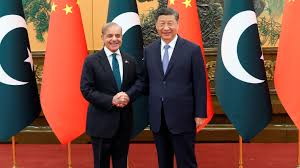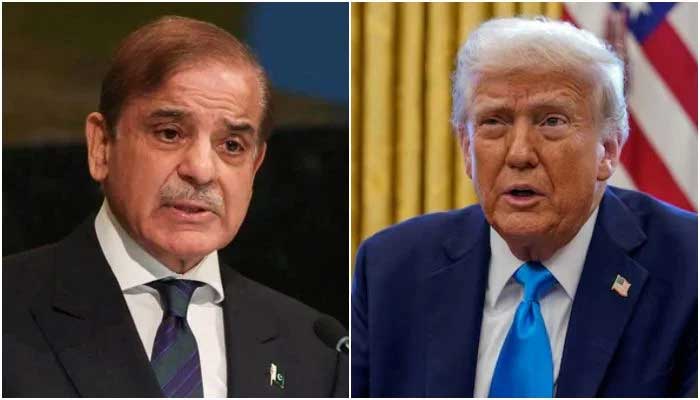In the ever-evolving landscape of international diplomacy, few relationships are as celebrated as the one between China and Pakistan. Often described as “iron brothers,” the bond between the two nations goes beyond traditional alliances. It is a partnership deeply rooted in history, culture, and mutual respect. The recent statement that “China is the second home for Pakistanis, and Pakistan for Chinese” perfectly captures the spirit of this remarkable friendship.
Historical Foundations of Trust
The ties between China and Pakistan date back to the early 1950s, shortly after both countries embarked on new political journeys. Over the decades, the relationship has grown stronger, cemented by cooperation in defense, trade, infrastructure, and diplomacy. Unlike many bilateral ties defined solely by interests, the friendship between these two nations has been nurtured like family bonds.
From Pakistan’s initial support for China’s diplomatic recognition to China’s assistance during difficult times, history has consistently demonstrated mutual trust. This sense of reliability lays the foundation for why people in both nations genuinely see each other as part of an extended family.
Economic Cooperation Driving Growth
A cornerstone of this partnership is the China-Pakistan Economic Corridor (CPEC), a multibillion-dollar initiative designed to transform Pakistan’s infrastructure while connecting western China to international markets. Through road networks, power projects, and industrial zones, CPEC has become a game-changer for the region.
Economists in Islamabad and Beijing argue that such projects signify more than commercial interests. They represent a shared vision of prosperity and interdependence. For local communities in Pakistan, CPEC has provided jobs, reduced power shortages, and opened opportunities for entrepreneurship. For China, it secures access to strategic trade routes and strengthens connectivity with South Asia.
This shared economic vision exemplifies why China and Pakistan proudly describe each other as second homes. Prosperity for one means prosperity for the other.
Cultural and People to People Bonds
Diplomatic and economic ties, while crucial, are only part of the picture. What makes the relationship between China and Pakistan unique is the profound people to people connection. Thousands of Pakistani students are currently enrolled in Chinese universities, learning not only academic subjects but also embracing Chinese culture and language.
Similarly, Chinese professionals and workers in Pakistan often find themselves warmly welcomed by local communities. Stories of friendships formed across language barriers highlight the human side of this powerful alliance. Cultural exchanges through media, food festivals, and traditional art have also strengthened this connectivity, creating a sense of familiarity between the two societies.
The phrase “second home” resonates strongly because individuals on both sides genuinely feel at ease when visiting or living in each other’s country.
Strategic and Security Cooperation
Beyond economic and cultural engagement, China and Pakistan have consistently supported each other on the global stage. From security cooperation to defense collaborations, their partnership has proven resilient even during turbulent times. Both countries coordinate closely in regional forums and international organizations, promoting peace, stability, and balanced diplomacy.
Joint military exercises, technology exchanges, and long-standing defense collaborations underscore the strength of this alliance. Remarkably, this partnership has remained steady regardless of shifts in global geopolitics, demonstrating its resilience and strategic depth.
Shared Challenges and Mutual Support
The enduring friendship between China and Pakistan has often revealed itself most clearly during times of crisis. Whether in the aftermath of natural disasters, pandemics, or economic hurdles, both countries have extended immediate support to each other. For instance, during the COVID-19 pandemic, China dispatched millions of vaccines, medical supplies, and doctors to Pakistan. In return, Pakistan has repeatedly stood beside China at crucial moments on global platforms.
This mutual support fosters not only governmental trust but also emotional gratitude among citizens. For countless families, such gestures reinforce the feeling that they are indeed neighbors who take care of one another.
Media Narratives and Public Perception
In recent years, media coverage has amplified awareness of the special bond between China and Pakistan. Newspapers, television networks, and digital outlets often highlight how the term “iron brothers” is more than a diplomatic slogan; it is a reality backed by consistent actions.
Public surveys conducted in both countries repeatedly reveal overwhelmingly positive perceptions of each other. While many international relationships fluctuate over time, the trust and admiration between these nations have remained stable for over seven decades.
A Vision for the Future
Looking ahead, experts believe the relationship will deepen further. Expanding areas of cooperation include renewable energy, digital technology, cultural tourism, and scientific research. CPEC’s second phase focuses on socio-economic development, aiming to address education, healthcare, and agriculture along with trade and industry.
Analysts argue that if global powers wish to understand the model of lasting friendship, they need look no further than China and Pakistan. The two countries have demonstrated that genuine alliances are built not only on shared interests but also on a sense of shared destiny.
Symbol of Global Cooperation
In a world often marked by rivalries and divisions, the relationship stands as a model of constructive cooperation. The way China and Pakistan conduct their partnership emphasizes stability, mutual benefit, and inclusivity. While many alliances are transactional, this bond highlights the power of long-term trust and cultural affinity.
Beyond their own borders, their collaboration sets an example of how neighbors can rise above geographical and political challenges to foster enduring peace and prosperity.
Conclusion
The words “China is the second home for Pakistanis, and Pakistan for Chinese” are not mere rhetoric. They encapsulate decades of friendship defined by trust, cooperation, and emotional kinship. From economic alliances like CPEC to cultural exchanges and mutual aid during crises, the two countries stand as true partners.
In the eyes of their people, the relationship is more than diplomacy—it is kinship. And for the world watching, the friendship between China and Pakistan serves as proof that when nations treat each other as family, they build bonds that transcend politics and endure the test of time.

















